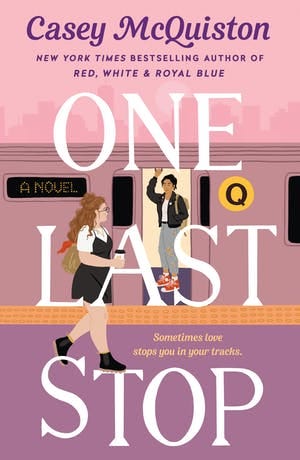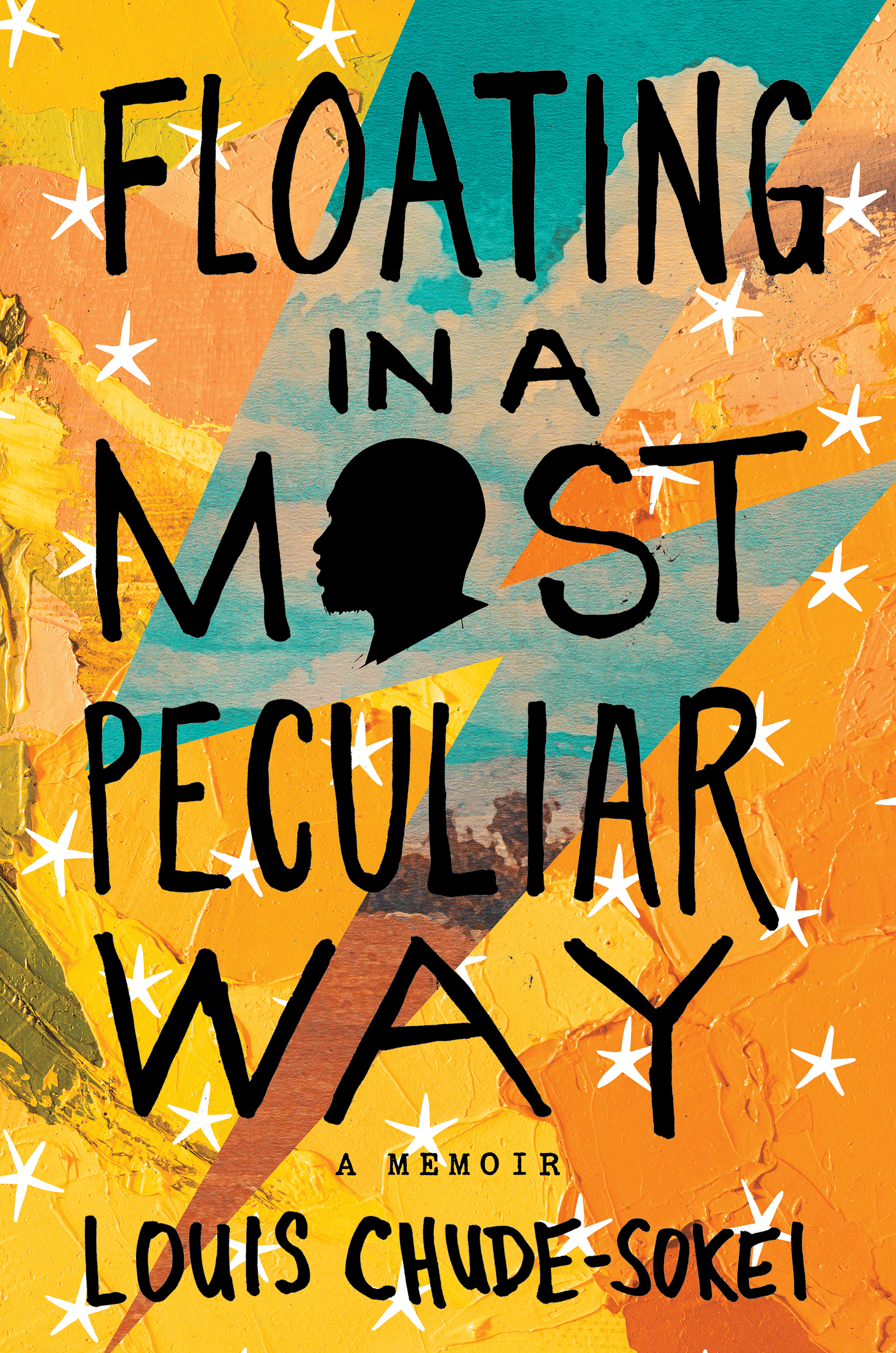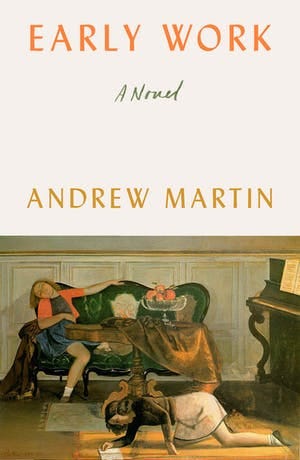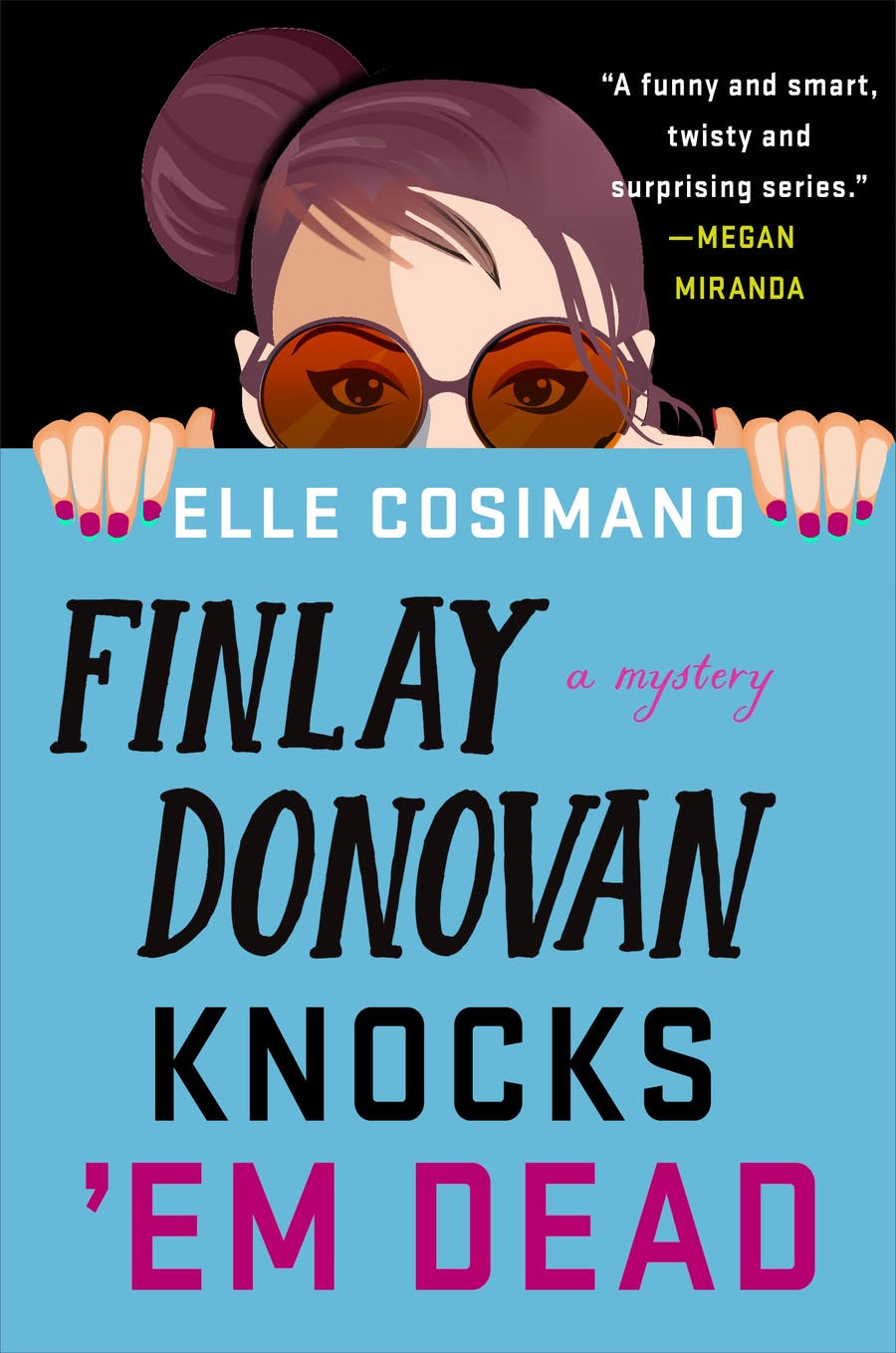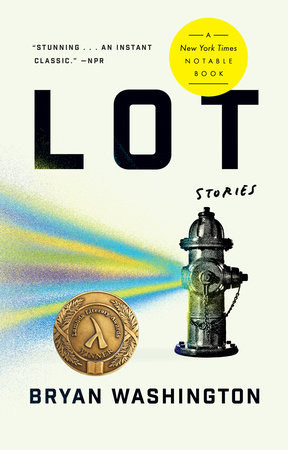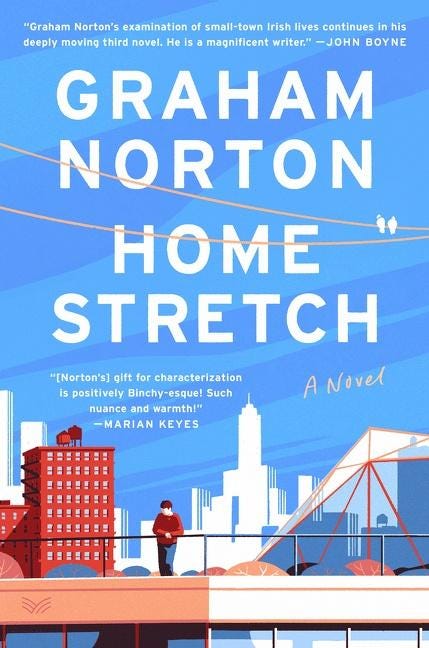Welcome to the September 2021 Reading Round-Up. Each month, I write about the books I read and rank them from worst to best.
This month, I tried something new with my reading. In order to get through books faster and avoid accruing late fees at the library, I started downloading the audiobook version of my current reads using Libby, an app that connects to your library card and lets you listen to books for free. This let me keep reading when I was doing tasks like cooking dinner or doing laundry, and the result was an extremely productive reading month.
13. One Last Stop – Casey McQuiston
Fiction/Romance, 432 pages
August moves to New York City and quickly finds a job at a beloved pancake restaurant, rents a cheap room with quirky and loving roommates in Brooklyn, and enrolls in community college to finish her degree. While riding the Q train August notices a girl on the train, Jane, and becomes enraptured. In the process of getting to know her, however, August discovers something bizarre; Jane has been trapped on the Q train since the 1970s, riding the line back in forth in perpetuity. It becomes August’s mission to free Jane from the train, and in the process the two become romantically involved. One Last Stop was hotly anticipated following the success of McQuiston’s debut novel Red, White and Royal Blue. Although I was a big fan of Red, White and Royal Blue, I was extremely disappointed by One Last Stop. The premise was too strange and unbelievable and the plot lines were too convenient – August immediately finds extremely supportive and loving roommates who all have skills and connections pertinent to cracking Jane’s case, including one psychic roommate and another who happens to be an expert in physics and the time space continuum. The book was also way too long, filled with scenes that were probably meant to show character development, but were redundant and could have definitely been cut. Pervasive joy is the redeeming quality of the book, but that could not sustain the story.
Rating: 6/10
12. Blacktop Wasteland - S.A. Cosby
Fiction/Thriller, 320 pages
Beauregard is a car mechanic in rural North Carolina working hard to move past a crime-filled life, one in which he was known for his prodigious getaway driver skills. He’s also struggling to support his family and make ends meet. When an opportunity arises to participate in what should be a low risk high reward jewelry store robbery, Beauregard decides to join in, deciding that this will be his last foray into illegal activity. However, what Beauregard does not know is that the store they rob is a front for a violent gang, and his involvement sets him spiraling back into a dangerous world where his life is at risk and no one can help. S.A. Cosby has been heralded as a new voice in southern noir fiction and for transitioning the genre into the literary space. I definitely noticed the vivid language that makes the mood and setting viscerally dark and gritty, which is better than traditional mass-market thrillers. However, the book was filled with detailed, frequent, gratuitous violence, which is not my cup of tea.
Rating: 7/10
11. Floating in a Most Peculiar Way - Louis Chude-Sokei
Non-Fiction/Memoir, 240 pages
Louis Chude-Sokei is the “first son of the first son” of the short-lived nation of Biafra. When he was a small child his father, a high-ranking army major, was killed in the civil war in Nigeria, and his mother escaped with him to Jamaica. Chude-Sokei’s memoir is about his childhood living in a group home in Jamaica and then the United States as well as life as a member of the African diaspora and the differences between being an African living in America and being African American. While Chude-Sokei’s experience is no doubt interesting, I wanted to know more about his mother and his father, particularly their roles in the Nigerian civil war and the history of Biafra. These experiences are written about almost tangentially, which felt like a missed opportunity.
Rating: 7/10
10. Dial A for Aunties - Jesse Q. Sutanto
Fiction/Romance/Mystery, 320 pages
Within the first twenty pages of Dial A for Aunties, Meddelin Chan accidentally kills her blind date after she tasers him while driving. Panicked, Meddelin calls her mom and aunts to help her get rid of the body. They decide to take the body to a big wedding scheduled for the next day at an island resort where she and her aunts are working. Inevitably all hell breaks loose when the wedding goes off the rails and an old love interest of Meddelin arrives. Dial A for Aunties was light and fun, mixing the enjoyable elements of a mystery and a romance with the right amount of suspense. Although the writing of the book is there to advance the plot rather than stand out on its own, that feels perfectly acceptable for what the book sets out to achieve.
Rating: 7.5/10
9. While Justice Sleeps – Stacey Abrams
Fiction/Legal and Political Thriller, 364 pages
While most people know Stacey Abrams as the famed voting rights advocate and lawyer in Georgia, she is also the author of three novels; two romances printed under a pen name and her most recent legal political thriller, While Justice Sleeps. In While Justice Sleeps, Abrams asks what happens when a Supreme Court Justice becomes incapacitated, but does not die. Early in the book, Justice Howard Wynn, who is rumored to be the key swing vote in a contentious merger between two biogenic companies doing genomic sequencing research, falls into a coma just days before the end of the term as a result of a rare genetic condition. In preparation for the inevitable demise of his health, Justice Wynn shockingly appoints his law clerk Avery Keene as his legal guardian and power of attorney, leaving her with not just the life-altering decision of whether or not to take him off of life support, but also the clues to discover a multi-national scandal surrounding the development of bioweapons that can target certain ethnic groups. Along the way, Avery discovers a conspiracy linking the weapon development to the companies at the center of the contentious Supreme Court case as well as to the president himself. While definitely an interesting plot, I thought that Abrams made the book a bit too complicated for what it was trying to accomplish and I sometimes found it difficult to remember who was on what side and for what reason. In addition, much of the dialogue felt like it would be better placed in a lofty political speech rather than in conversations between regular people. Despite this, I still found the book entertaining and engaging.
Rating: 7.5/10
8. Strongmen - Ruth Ben-Ghiat
Non-Fiction, History, Democracy/Politics, 384 pages
In Strongmen, Ruth Ben-Ghiat compares Donald Trump to dictators throughout the 20th century in order to make the argument that Trump should be considered one himself. Starting with Hitler, Mussolini, and Franco and moving through time to Pinochet, Qaddafi, Berlusconi, Orban, and more, Ben-Ghiat writes about the authoritarian qualities that each leader shares and the varied circumstances in which dictators can thrive. Although the anecdotes that Ben-Ghiat shares make for an interesting story, the connections between the different dictators can feel superficial at times without any control for external factors, such as whether or not the leader came to power democratically or through a coup. I liked the book for its historical overview as I did not previously know too much about the details of the Pinnochet or Qaddafi regimes, however I would not rely on this book as a definitive academic account of the mechanics of a dictatorship.
Rating: 7.5/10
7. Heaven - Mieko Kawakami
Fiction, 192 pages
The book opens in a Japanese classroom as "Eyes," the unnamed protagonist and narrator finds a note in his desk from his classmate Kojima, asking to be friends. Eyes and Kojima are relentlessly bullied at school, often violently, and do not have any other friends before they make their connection. The story follows their unusual friendship as well as the development of "Eyes'" sense of agency amongst people who assume he has none. I enjoyed the anonymity of the town where the characters live in Japan because it allowed the reader to focus on the universal conditions that "Eyes" and Kojima were experiencing. Every middle schooler can identify with bullying and every adolescent can remember questioning personal adequacy amidst the doldrums of required school obligations. Because this book was originally published in 2009 in Japan and has only recently been translated to English, Kawakami is not using the novel to explain elements of Japanese culture to her readers. Instead, you get to enjoy the universality of the story against the backdrop of little differences from life in America, such as a convenient healthcare system to the structure of the school term. Although the book alternates between feeling depressing to overly quirky, Kawakami is a beautiful writer and I plan on reading more of her work.
Rating: 7.5/10
Thank you to Europa for the advance readers copy.
6. Early Work – Andrew Martin
Fiction, 240 pages
One of my favorite fiction sub-genres is coming of age stories centering around a protagonist in their early to mid-20s trying to find their place. I picked up Early Work by Andrew Martin after hearing it recommended on the New York Times Book Review podcast and compared to the work of Sally Rooney, an author considered to be at the pinnacle of the genre. Early Work follows Peter, a writer in his late-20s who is floating through life unencumbered and unfulfilled. He lives with his girlfriend Julia, who is attending medical school in Virginia. While Julia works long and hard hours, Peter passes his time teaching a writing course at the local women’s prison and intellectualizing about writing with friends at dinner parties. At one such dinner party Peter meets Leslie, a fellow writer who appears to put pen to paper a bit more frequently than Peter (although not by much). Peter and Leslie embark on an illicit affair, justifying their decision as temporary until Peter is discovered and he must choose between Julia and Leslie.
Andrew Martin is no doubt a talented writer, but I found Peter’s character to be insufferable. Even though I could empathize with some of his experiences and angst, I found him completely irredeemable and unlikeable. Peter is the type of person who thinks that everything bad that has happened to him is not his fault, while single-handedly torpedoing the one positive element of his life, his relationship with Julia. Because the book is mostly a long character study of Peter, I can’t say I was disappointed when the book came to a close.
Rating: 8/10
5. Finlay Donovan Knocks 'Em Dead - Elle Cosimano
Fiction, 368 pages, release date February 1, 2022
Finlay Donovan Knocks ‘Em Dead is the second book in the Finlay Donovan series by Elle Cosimano. I really enjoyed the first book in the series and was excited to get an advance readers copy of the sequel, which is out February 1, 2022. In order to avoid spoilers, I definitely recommend reading the first book before tackling the second. In Cosimano’s most recent installment, Finlay and her babysitter sidekick Vero are back, this time trying to figure out who has put out a request for a hit on Finlay’s ex-husband, Steven. Unable to go to the police because she cannot explain how she knows about this request without becoming a suspect in the murder that took place in book #1, Finlay has to fly under the radar and use book research as an excuse for some of her more questionable investigative tactics. Wherever Finlay goes the contract killer appears close behind, placing her in many dangerous and close-call situations. The mood, structure, characters, and sometimes even plot of this book are very similar to book #1 and sometimes it felt like there were not many new elements added to separate this book fully from its predecessor. However, this is not necessarily a bad thing. Instead, I think it speaks to what is good about this series; Cosimano has created humorous, likable characters to serve as her protagonists in what is a fast-paced and engaging set of books.
Rating: 8/10
Thank you to Macmillan for the advance readers copy.
4. The Cruelty is the Point - Adam Serwer
Non-Fiction/Essays, Current Events/Politics, 384 pages
The Cruelty is the Point is a compilation of essays published by Adam Serwer in The Atlantic throughout the Trump presidency. While each essay is published in reaction to certain milestones of the administration and thus are facially different in terms of subject matter, Serwer’s argument throughout each is that Trump and his actions are outgrowths of American history and the country’s lack of reconciliation with slavery and the Reconstruction Era. In the titular essay, Serwer argues that Trump’s popularity came from his vitriol and the “us versus them” mentality that it generated, while in another essay Serwer writes about the underlying racism of Trump’s behavior and the way that it has empowered people to express outwardly what they already felt. In an era in which many people would prefer to think that the Trump years are behind us, Serwer’s collection feels poignant and relevant; a reminder that Trump is an outgrowth of the already existing tensions of our imperfect nation.
Rating: 8/10
3. Lot – Bryan Washington
Fiction/Short Stories, 240 pages
Lot is a collection of short stories set in the impoverished neighborhoods of Houston. Each story is named after a different area of the city, with one story written in several installments and interspersed throughout the book. While the other stories do not interact in the same way, each of them feature similar themes of poverty, racism, and anti-immigrant sentiment projected upon the life of a young male protagonist who is gay or coming to terms with his sexuality within the context of his community. In one of the most striking stories of the book a young male sex worker discovers that his pimp has contracted AIDS and must come to terms with his ability to protect him and himself with limited resources. Washington, who was only 25 when he published this collection, writes in raw prose in each of his stories about the coming of age experience in a starkly unequal society.
Rating: 8.5/10
2. The Startup Wife - Tahmima Anam
Fiction, 304 pages
The Startup Wife is a cautionary tale of a tech startup gone wrong. Asha is a brilliant coder specializing in artificial intelligence. Along with her husband Cyrus, a spiritual guru obsessed with ritualization, Asha builds a platform meant to provide secular community and meaning to everyday milestones. The platform is geared towards a generation of millennials who don’t identify with traditional religion but still want a sense of community and human connection. Once launched, it becomes immensely successful, but as it grows the spotlight begins to focus almost exclusively on Cyrus as a new messiah, and the personal and professional lives of the married couple blend until they are indistinguishable from one another. The Startup Wife provides fascinating commentary on the state of the start-up world, including the amount of power social media platforms and their founders have in our lives.
Rating: 9/10
1. Home Stretch - Graham Norton
Fiction, 360 pages
The book begins in 1987 with a car crash in the small Irish village of Mullinmore that kills three and leaves another person paralyzed. The lives of the two survivors, Martin and Connor, one of whom was driving the car, diverge dramatically. Connor runs off to Liverpool and works as a manual laborer. However, when one of his colleagues finds out that he is gay, Connor is forced to leave and ends up in London and then, eventually, New York. Afraid of his parents' reaction to his sexuality and the judgement of his hometown, Connor stops communicating with his family, leaving them to wonder if he is dead or alive. On the other hand, Martin follows in the footsteps of his father and becomes a doctor, surprisingly marries Connor's sister Ellen, has two children, and lives out his life in an unhappy marriage in Mullinmore. When Connor happens to run into his long-lost nephew in a gay bar in New York over twenty years later, everyone must revisit their understanding of what happened on the day of the crash and the resulting consequences.
I very much enjoyed this book and the slow, measured way that Norton revealed the story to his readers. I loved how pieces of the story that might have otherwise gone under the radar as inconsequential appeared again throughout the book to link together what happened on the day of the crash and the years afterwards. The book is not dramatic or fast paced, but the richly developed characters make it easy to get lost in a story of people searching for meaning and acceptance.
Rating: 9/10
Thank you to Harper Collins for the advance readers copy.
If you like what I’ve written or want to see more reviews, recommendations, and round-ups about a wide range of novels, histories, and more, consider subscribing now by entering your email. It’s free and it’s about books. What’s not to like?
Want to see last month’s round up? You can find that here.



